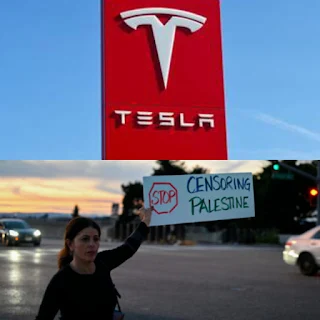Xinhua reported that the American company Tesla launched a project in Shanghai to develop a large factory to produce energy storage batteries.
According to the agency, the agreement to purchase the land allocated for the new factory was signed in Shanghai on Friday morning, December 22, and a celebration was held dedicated to this event.
The aforementioned factory is expected to begin production in the fourth quarter of 2024, and will produce 10,000 Megapack batteries per year.
Megapack batteries are powerful energy storage batteries that can be connected to electrical networks to prevent power outages while the networks are operating.
Tesla also owns a car production factory in Shanghai, which it completed construction in 2019. This factory produces Model 3 and Model Y vehicles, and since October 2020, this factory has exported Model 3 cars to many European countries, including: Denmark, Switzerland, Sweden, Spain, the Netherlands, and Norway.
According to the latest data, 850,000 cars were assembled in the aforementioned factory from the beginning of this year until last November, which is 30% more than the same period in 2022.
Report: Meta imposes systematic censorship on pro-Palestine content!
Human Rights Watch (HRW) has alleged that Meta is systematically censoring pro-Palestine content amid the ongoing conflict in Gaza.
In a report published on Wednesday, the organization claimed that the company, headed by Mark Zuckerberg, removed or blocked large numbers of pro-Palestine posts for several reasons, including “overreliance” on automated content moderation tools and what it referred to as “undue government influence.”
“Meta’s censorship of pro-Palestine content makes matters worse at a time of unspeakable atrocities and repression that are already stifling Palestinian expression,” Deborah Brown, acting director of technology and human rights at HRW, said in the report.
“Social media is an essential platform for people to bear witness and speak out against abuses, while Meta’s censorship promotes the erasure of Palestinian suffering,” Brown added.
HRW examined more than 1,000 instances of Meta censorship in 60 countries, the report said, and found “a pattern of unjustified removal and suppression of protected expression,” which included “peaceful expression in support of Palestine.”
He added that in dozens of cases, Meta removed posts documenting the Gaza crisis. These removals were justified by referring to the platform's policies on "violent and graphic content, violence, incitement, and hate speech."
In other cases, the HRW report said Meta cited a policy aimed at limiting “organizations or individuals declaring a violent mission,” to prevent influence on its platforms. However, this policy has been used to "restrict legitimate freedom of expression."
HRW added that errors in Meta's user interaction system meant that about a third of censored or deleted posts could not be formally challenged.
Earlier this week, Meta's independent oversight board criticized the company for removing content that showed the scale of suffering in Gaza. Board co-chair Michael McConnell said such publications provide “time and diverse information about groundbreaking events.”
Last year, Meta said it intended to amend its content moderation systems in response to the recommendations of its oversight board, but HRW claimed in the report that no such action had been taken.






Good
ReplyDeleteGood
ReplyDelete